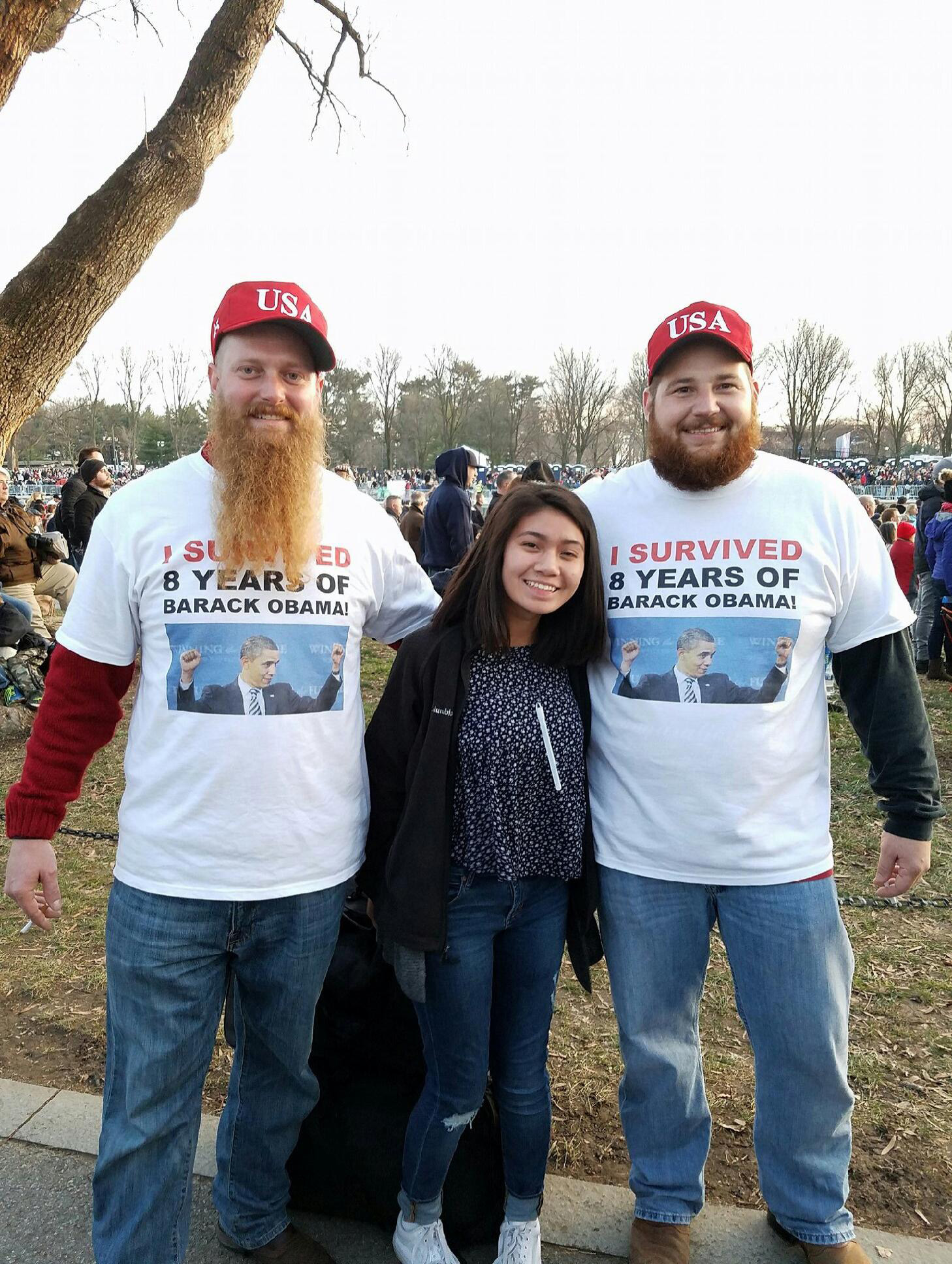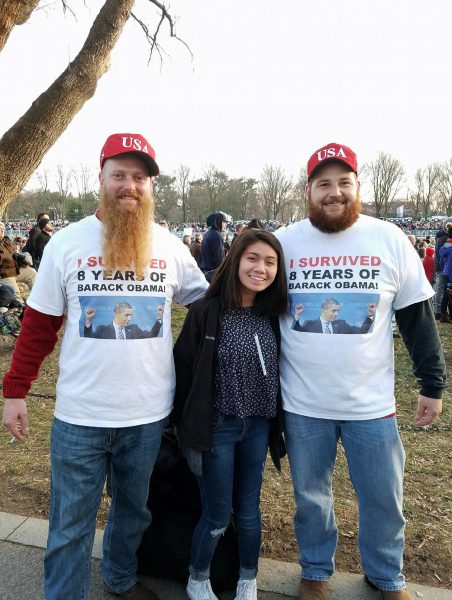

Junior Kennedy Mallard didn’t want to attend the inauguration of President Donald Trump.
“I signed up months in advance, thinking I was going to see the inauguration of our first woman president,” she said, “so I was really disappointed on election night, knowing I couldn’t get a refund.”
But while the event was not what she had hoped for, it turned out to be worthwhile.
“I really liked his inauguration, actually,” she said. “[I liked speaking] with other kids who don’t have the same views as me, kids with shirts saying ‘The witch is dead,’ with Hillary’s face on it, and ‘I survived eight years of Obama’ … I befriended a lot of kids from Texas, and I still talk to them to this day. They really love Trump, and it was interesting talking to them.”
Trump’s presidency has brought major changes to the political landscape, some of which are apparent at Aragon.
With only 6.8 percent of students voting for Trump in last year’s school mock election, it’s clear that a large majority of Aragon disapproves of him, in terms of both his policies and personality.
“I definitely don’t support things such as the wall or the Muslim ban,” Mallard said, “but I think what I dislike about him the most is the way he presents himself, or his rhetoric throughout the election.”
Senior Granger Brenneman, who identifies as a libertarian, is skeptical of Trump’s ability to lead.
“His personality, that he can’t even get along with members of his own party, and the fact that he’s promoting this madman foreign policy with North Korea is incredibly concerning to me,” he said.
For conservative students, feelings are mixed. Junior Adam Bever aligns himself with most of Trump’s policy positions, but is more skeptical of the president’s personality.
“He doesn’t do things the best way he could,” Bever said. “[But] he’s not making all the policies. If his advisers seem competent, I’m OK with it.”
On both sides of the aisle, students have gotten more involved in politics due to the contentious 2016 election and Trump’s presidency.
“I came here from the Philippines when I was 5 years old. I was an immigrant, now [I am] a U.S. citizen,” said senior Miguel Hugo. “Hearing what he’s been saying about immigration kind of ticks me off, since if I were to move to the U.S. in these times, I don’t think it would be as easy as it was 12 years ago.”
This connection to the immigration issue gave Hugo the drive to learn more about politics, as well as join the school’s Harvard Model Congress club.
Mallard was also catalyzed by the election to be more involved in politics.
“I was definitely involved in politics before, but I kind of consider this my political awakening because it was when I first started feeling really passionately, when I realized I really disagreed with certain opinions,” she said. “I’ve been to a few protests — I went to the impeachment march in San Francisco over the summer — and as a 15-year-old, there’s not much I feel like I can do, but I definitely like to speak my opinion.”
Bever believes that the election helped expose him to new ideas.
“Most of my family is liberal,” he said, “so I held their ideas, but the 2016 election gave me an outlet to look into other political ideas, and through that my [political] involvement grew.”
Despite many conservative people across America feeling like Trump’s election has allowed them to speak more freely, Bever is less confident about how much of an effect it has had at Aragon.
“We live in a very Democratic area,” he said, “so while my party is in power [and] it’s easier for me to speak out, you saw what happened at Berkeley when they tried to bring in conservative speakers.”
Mallard had similar sentiments.
“I think there’s a lot more tension,” she said. “I believe that there is a stigma against them at this school, and in the Bay Area in general, where people are like ‘How could you be Republican? How could you support Trump?’ without actually understanding what their views are.”
A period generally marked by greater awareness of current events, high school plays a major role in shaping one’s views of government. And as a majority of current Aragon students will be old enough to vote in the next presidential election, students’ reactions to Trump will shape not only their political philosophy, but also their electoral action.



